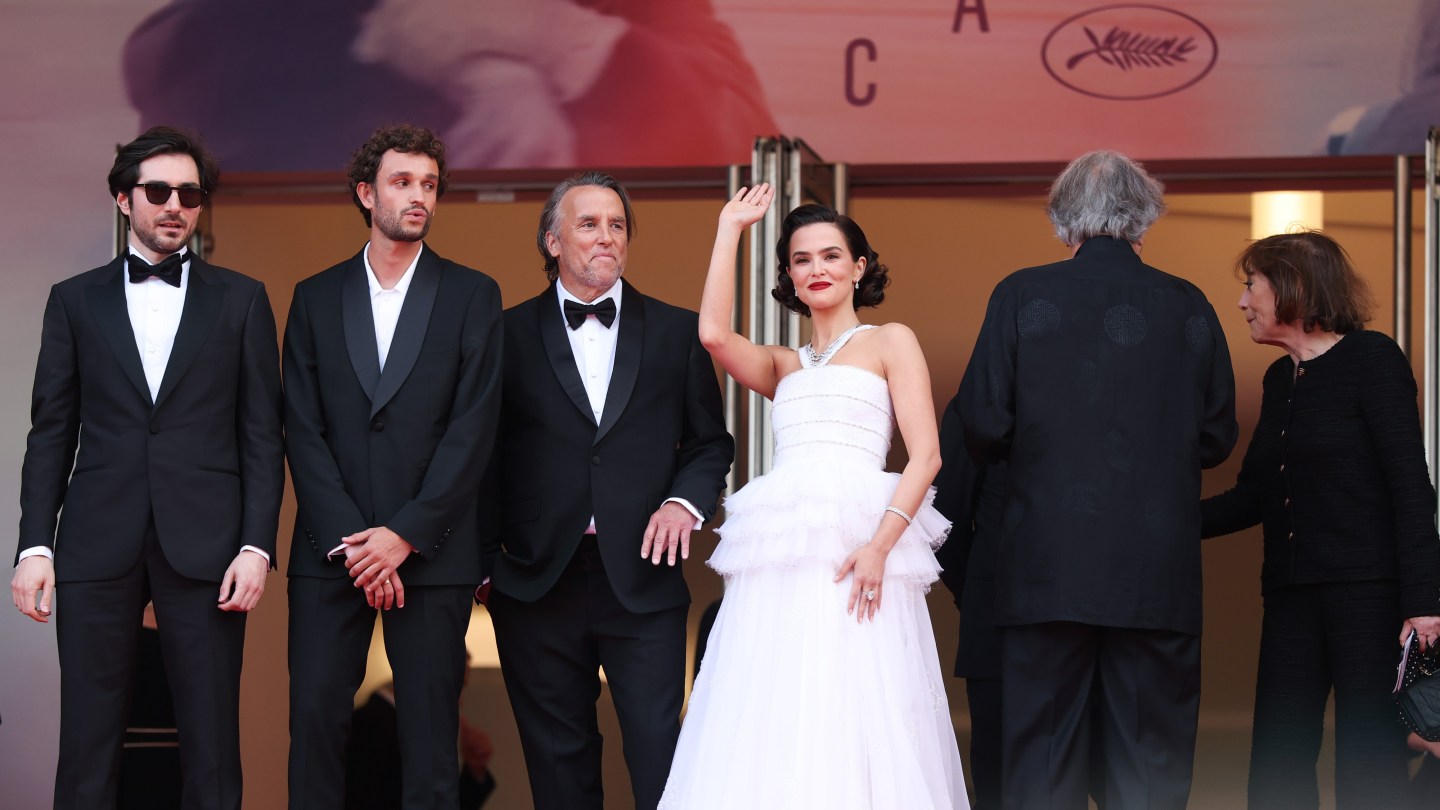It’s hard to imagine an American indie movie more suitable for a Cannes red-carpet premiere than Richard Linklater‘s Nouvelle Vague. The maverick director’s black-and-white love letter to the French New Wave premiered to a rapturous response Saturday night inside Cannes’ Palais des Festivals, drawing a 10-minute-plus standing ovation from the black-tie crowd.
“Cinema is magic,” Linklater said as the house lights came up inside the cinema and the applause finally began to dwindle.
The standing ovation even got started before the lights came on as the crowd began clapping in unison for the love letter to French cinema.
Going into the night, there was considerable anticipation surrounding Linklater’s 23rd feature. The film wasn’t screened for critics in advance of the premiere, as the director was said to prefer that it be seen for the first time on the big screen at its French premiere. The film’s official summary reads, simply: “This is the story of Godard making Breathless, told in the style and spirit in which Godard made Breathless.”
Shot on film in the 4:3 aspect ratio and told entirely in French, Nouvelle Vague stars Guillaume Marbeck as Jean-Luc Godard, Zoey Deutch as Godard’s star Jean Seberg, and Aubry Dullin as Jean-Paul Belmondo. Linklater has said that his mission for the movie was “to show the absolute love of cineastes.”
Speaking of those, arch-cineaste Quentin Tarantino turned up to support Linklater’s tribute to Godard. The two directors came to prominence together in the 1990s during the American indie film wave. Tarantino and Linklater shared a moment before the premiere screening, embracing inside the cinema before the lights went down, which drew hoots and cheers from the crowd.

Linklater on set of ‘Nouvelle Vague’
Jean Louis Fernandez
Although famously good-natured and avuncular, unlike his mercurial genius that is the movie’s subject, Linklater is in many ways just the right Austin dude to take on the French New Wave’s revolutionary spirit of cinematic invention. Across his 35-year career, which began with the shoestring-budget comedy-drama Slacker (1990), Linklater has continually dipped in and out of convention, testing the medium’s formal boundaries. His filmography spans generation-defining coming-of-age comedies like Dazed and Confused (1993), the Before trilogy — Before Sunrise (1995), Before Sunset (2004), and Before Midnight (2013) — and School of Rock (2003); innovative animated features like Waking Life (2001) and A Scanner Darkly (2006); crime comedies with existential overtones such as Bernie (2011) and Hit Man (2023); period pieces like Me and Orson Welles (2008) and Blue Moon (2024); the decade-spanning American masterpiece Boyhood (2014), and more.
Nouvelle Vague now marks his first film shot entirely in France. The screenplay is from Vince Palmo, Michèle Halberstadt, Laetitia Masson, and Holly Gent, while David Chambille handled the cinematography. Paris-based sales agent Goodfellas is shopping the project to international distributors in Cannes.
Godard’s Breathless (À bout de souffle, 1960), is one of the great landmarks of the French New Wave. The movie follows Michel Poiccard (Jean-Paul Belmondo), a small-time criminal on the run after killing a policeman, and his romantic entanglement with Patricia Franchini (Jean Seberg), an American journalism student in Paris. Loosely inspired by American film noir, the film famously blends genre tropes with radical style. It marked Godard’s feature debut and catapulted Belmondo and Seberg to international fame. More than a crime film, it came to be seen as a manifesto of cinematic rebellion. The film-loving audience in the Cannes premiere Saturday night was probably cheering that legacy as well as Linklater’s achievement.











